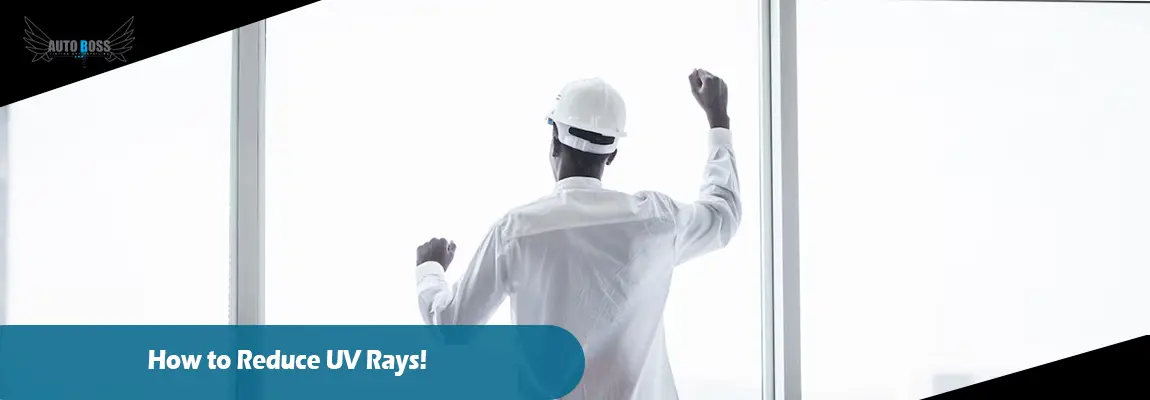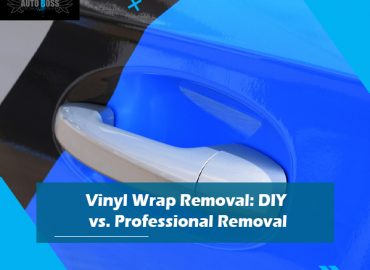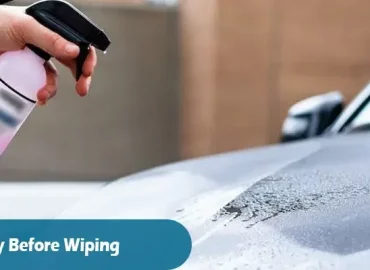Commercial window tinting shields the glare; it adds a protective layer to your commercial building. Let’s talk in detail! You can add window tinting to your business building is not a priority of every business but has other benefits for your employees and the building. Your commercial tints are a money saving option, and they also improve the feel, look and safety of your commercial building.
At Auto Boss Vaughan, we have decades of experience with local businesses. We can guide you in selecting the right tinting films.
The electromagnetic spectrum of light and working of tinting films
Before discussing how these tinting films work, it is best to know about the light spectrum first. Both visible and UV light are a small part of the electromagnetic spectrum that ranges from short-wave end cosmic rays to long-wave end radio waves. The visible part of the light spectrum is a small section between 400 to 760 nanometers. Everyone knows about the harmful effects of UV radiation.
When you eliminate the small part of the electromagnetic spectrum, you can protect yourself from harmful rays. Almost every solar window tinting film filters around 380 nm radiation. Quite a few tinting films filter the whole UV spectrum. When you get the tinting film, you may find the words “98% UV filtration” in its literature. So what does it mean? It means around 325 to 380 nm UV rays are filtered.
Protection layer
According to a recent analysis, one in five people is expected to develop skin problems in their lifetime, including premature aging, fading and even skin cancer. When you select and install commercial window tinting properly, it provides 24-hour protection against harmful UV rays.
Besides reducing glare, tinting films provide a protective layer against fading and reduce utility bills. Keeping an attractive appearance is important to attract and retain customers. But when your office furniture and floor are faded. It provides a look of worn-down space with no value. The fading interior gives a negative impression on customers. Don’t block natural light in your office.
Benefits of window tinting
Window tinting is the best safety solution for overheating and glare without window replacement. Tinting retains for up to 7 years.
Tinting will
- Creates privacy
- Reducing glare
- Create employees/tenants.
- Overheating protection,
- Reduces utility bills
- Minimizes fading
Benefits of Commercial UV tint
UV rays are present in the atmosphere every day, and the properties, whether residential or commercial, get exposed to them. Unfiltered or direct sunlight harms not only human skin but also the dyes of carpets, fabrics and woodwork. Direct sunlight causes the dyes of your furnishes over time, causing an unattractive dim appearance. You can avoid these issues by applying UV-blocking tint. When you install UV-protecting window tints on your commercial property, you will experience these benefits such as
- Protection from solar rays is equivalent to SPF 1000.
- Protection from ultraviolet radiation up to 99.9%
- Protection from skin cancer and other skin diseases (Scientifically-proven)
- A healthier and more productive office environment.
- Reduced the risk of fading (flooring and furniture)
- Vibrant and beautiful office interior color that may last over the years.
How does UV protection help in reducing color fading?
UV protection films help in reducing the chances of color fading. UV rays are only 3% of solar energy and contribute around 40% to the fading directly linked to premature skin aging, melanoma, and even skin cancer.
Breakdown of UV radiation
- UV-C 200-290 nm wavelength: The atmosphere blocks these rays by itself.
- UV-B 290-320 nm wavelength: the intensity of these rays changes throughout the daytime. You can block these rays with glass.
- UV-A 320-380 nm wavelength: these rays are always present in the atmosphere, and you can block them with window tinting films.
What causes fading?
- 25% visible light: Window tinting films can reduce this light up to 64%
- 25% heat gain: tinting films reduce heat gain by up to 41%
- 40% UV light: Films reduce 99% of this light
- 10% is artificial light, dye quality, humidity and air contaminants.
It is important to understand that window tinting films can reduce the fading speed, but they can not stop fading completely.
Health benefits of UV protection tinting films
Most modern workspace designs include large windows and skylights because natural light is mainly considered good for improving performance and mood.
At the same time, the skin cancer foundation research shows that workers sitting near untreated glass have more signs of skin-related health problems and aging due to exposure to the sun. Installing window tinting films in your workspace keeps the staff safe from UV rays, and improves their productivity and performance.
Conclusion
UV-protected Commercial window tinting films come with health benefits and protect furniture and furniture from fading.
FAQs
Do tinted windows minimize UV rays?
Tinted windows minimize the amount of UV radiation to penetrate the tempered glass by over 99%.
How can you block UV rays from entering your office?
Use window tinting films. Tinting films are one of the most cost-effective materials to block UV rays from your office or home building. Whether you prefer cellular, woven wood shades or Roman shades, select the option that provides the highest level of UV protection.
Which tint is best for blocking UV rays?
Ceramic window film is proven to be the most effective tint against UV rays. Although it is more expensive than other tinting films, it provides 99% protection against UV rays.
Which materials can block UV rays?
Unbleachable cotton: It contains natural lignin that is a UV absorber. Lightweight satiny silks and shiny polyesters can also be highly protective because of their reflective radiation.
How much darker tints block UV rays?
The darker the tint is, it blocks more UV rays. However, some countries have tinting laws. So, you must check your country’s laws regarding window tinting.




